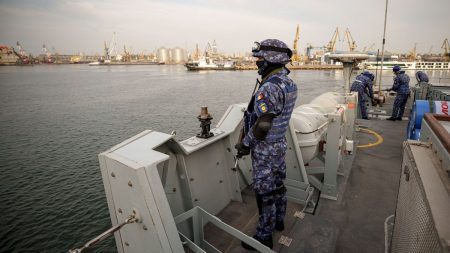The European Commission has issued new guidelines that effectively permit member states facing weaponized migration flows, orchestrated by Russia and Belarus, to temporarily suspend the right to asylum. This represents a significant shift in the EU’s stance on migration and asylum, accommodating the increasingly right-wing policies gaining traction within the bloc. Poland, facing a surge of migrants at its border with Belarus, initially proposed this controversial measure, and Finland has introduced similar legislation. The Commission’s endorsement now extends this possibility to any member state facing similar threats, marking a departure from its previous warnings against such actions. The executive body justifies this shift by arguing that the suspension of fundamental rights is permissible if it’s proportionate, temporary, and strictly necessary to address the security threat posed by Russia and Belarus.
The Commission’s approval of these measures represents a stark reversal from its initial response. When the Polish government first floated the idea, Brussels swiftly issued a warning, reminding Warsaw of its legal obligations to provide access to asylum procedures. Humanitarian organizations also condemned the proposal as unlawful. However, the Polish government successfully argued that the migrant flows constituted an existential threat to national security, swaying EU leaders to endorse the principle of taking “appropriate measures” in “exceptional situations.” The new guidelines formalize this principle, granting national authorities greater leeway to restrict migration flows manipulated by Russia and Belarus for political destabilization.
This “hybrid warfare” tactic, employed by Minsk and Moscow, initially surged in the summer of 2021 following contested elections in Belarus. While the flows have since fluctuated, they persist, fueled by Russia’s retaliatory actions against EU sanctions imposed over the war in Ukraine. The Kremlin is accused of facilitating these movements by providing visas and even equipment to low-income migrants, escalating the security threat at the EU’s Eastern border. According to Frontex, while Ukrainians fleeing the war represent the largest group crossing the Eastern border, significant numbers also come from countries like Ethiopia, Somalia, Eritrea, and Syria, complicating repatriation efforts due to the situations in their home countries.
The new guidelines raise significant concerns regarding the legality of pushbacks, a practice forbidden by both EU and international law. While the Commission claims that any exceptional measures must comply with international and EU law, its stance on pushbacks remains ambiguous. This vagueness reflects the rightward shift in the bloc’s migration policies. Human Rights Watch has documented instances of Poland violently expelling asylum seekers, and the situation of those denied asylum and barred from entering EU territory remains unclear. The guidelines mention the principle of non-refoulement, prohibiting the return of individuals to places where they face risks of persecution or ill-treatment. However, the Commission hasn’t clarified whether sending migrants back to Belarus violates this principle, especially given reports of asylum seekers facing abuse by Belarusian officials after being expelled by Poland.
The Commission’s shift in position raises concerns about the potential normalization of emergency measures at European borders. Critics argue that measures justified by “exceptional circumstances” can be easily extended indefinitely, effectively creating a new normal where fundamental rights are routinely curtailed. The lack of clear guidelines on pushbacks and the fate of denied asylum seekers further amplifies these anxieties. This changing landscape raises fundamental questions about the EU’s commitment to human rights and the rule of law in its handling of migration and asylum.
The ongoing situation at the EU’s Eastern border presents a complex challenge. The instrumentalization of migration flows by hostile actors poses legitimate security concerns for member states. However, the response must not come at the expense of fundamental rights and international legal obligations. The Commission’s new guidelines, while acknowledging the need for exceptional measures, risk creating a slippery slope towards the normalization of practices that undermine the very principles the EU is built upon. The ambiguity surrounding pushbacks and the lack of clarity regarding the fate of those denied asylum require urgent clarification to ensure that security concerns do not overshadow the imperative to protect human rights. Finding a balance between these competing interests remains a crucial challenge for the EU. The long-term implications of these evolving policies will depend on the Commission’s willingness to uphold its commitment to human rights while addressing legitimate security concerns.










